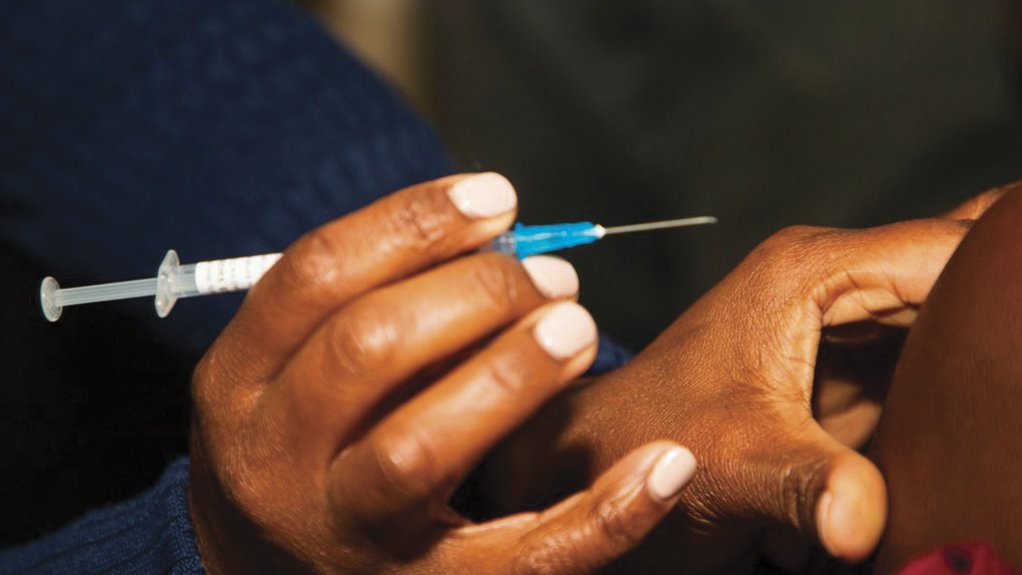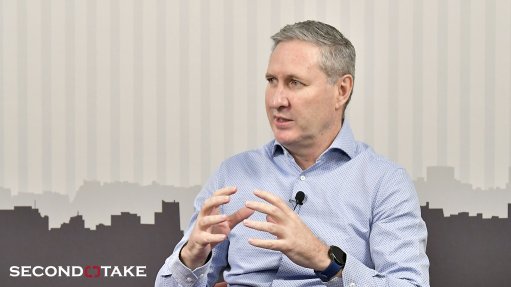Much work needed to boost Africa’s vaccine manufacturing capability
A newly published report has highlighted the steps that need to be taken to close the significant gap between the current less than 1% of vaccine doses supplied to African countries that are African-manufactured, and the goal of reaching 60% by 2040, as envisioned by Partnerships for African Vaccine Manufacturing (PAVM).
The report, titled 'Scaling up African vaccine manufacturing capacity', which was put together by UK charity foundation Wellcome, South African biopharmaceutical company Biovac and global management consulting firm Boston Consulting Group (BCG), noted several major risks that African vaccine manufacturers have identified that pose significant challenges to the desired economic viability of the industry.
The report outlined the challenges that African vaccine manufacturers face and what kind of support they need to ramp up African vaccine manufacturing.
“There has been unprecedented global and continental mobilisation to improve Africa’s access to vaccines and bolster the African vaccine-manufacturing ecosystem in the last 24 months,” BCG South Africa MD and senior partner Jan Gildemeister said during a webinar on the report on June 1.
However, the challenges put forward, including sustainability, and strategic and support concerns, would require immediate attention and collaborative action to ensure long-term success in African vaccine manufacturing, the report co-author said.
The sustainability risk, referred to as the "high-price and low-volume trap" by global health partnership Gavi, the Vaccine Alliance, continues to persist in the African manufacturing landscape. This is because the African vaccine-manufacturing industry remains in its very early stages, Gildemeister explained, with most African manufacturers making it clear that they are not profitable yet.
“They can’t secure the necessary funding and volumes to manufacture at scale, leading to higher prices and lower volumes,” he said.
The report states that several measures are needed to break free from this historical dynamic and establish a more sustainable pricing structure. Additionally, the lack of coordination among manufacturing initiatives increases the risk of overcapacity, emphasising the need for better alignment and strategic planning.
“Concrete measures need to be put in place to address the challenges holding African manufacturers back and create the conditions for a sustainable ecosystem. Creating a robust business model, identifying strategic priorities and enabling sufficient support structures requires collective action and commitment from all stakeholders to expand vaccine access and safeguard the future of the African vaccine manufacturing sector,” Biovac science and innovation head and African Vaccine Manufacturing Initiative executive director Patrick Tippoo said.
In terms of strategic risk, he added that African manufacturers needed to prioritise which vaccines and technology platforms they should focus on in the short- and mid-term.
This decision will require careful consideration of various factors, including the complexity of manufacturing a product and the current and future global supply and demand. In this regard, strategic planning and informed decision-making would be essential to ensure the efficient allocation of resources and maximise impact.
The support risk arises from the potential decrease in attention and efforts from national, continental and global stakeholders as the Covid-19 pandemic continues to recede, Wellcome vaccine research lead Deborah King said.
This decline in support poses a challenge to the sustained growth and development of the African vaccine manufacturing sector.
Gildemeister noted that the past 18 months saw many promising announcements and initiatives aimed at developing vaccine manufacturing capacity in Africa. However, there remained a need to demonstrate the economic viability and overcoming of significant risks for the long-term success of the strategy.
In response to these kinds of concerns, the partners who produced the report issued a call to action, outlining key steps that needed to be taken to adequately address the relevant risks and accelerate change.
First, Gildemeister noted that African governments needed to prioritise continental supply, even if it entailed higher costs, and to establish a supportive economic and regulatory environment that encouraged investment and growth in the vaccine manufacturing sector.
“Governments can support manufacturers in accessing funding and securing technology transfers through advance purchase agreements (APAs). APAs that help manufacturers gain traction in the local market are currently insufficient, indicating that going forward they need to be at the regional or continental level,” he explained.
Global health organisations were also called upon by the research partners to introduce supportive procurement and financial mechanisms to foster a more sustainable vaccine manufacturing ecosystem. These mechanisms are expected to create more favourable conditions for the industry's growth and ensure a more consistent supply of essential vaccines.
King said procurement mechanisms needed to be reviewed to facilitate market access and offer predictable demand. Suggestions made by the research team included Gavi introducing a minimum procurement share of African supply and the introduction of a continental pooling arrangement on vaccine demand to expand market volumes.
Moreover, the partners called on donors to provide sustained support to manufacturers, assisting them in overcoming obstacles and strengthening their capabilities. This support was deemed critical for scaling up production capacity to facilitate a more sustainable sector.
“Clarity is needed on financial support mechanisms to subsidise vaccine manufacturing in the medium-term and improve price competitiveness – whether the mechanism is funding of the investments or operations, or agreements to pay a price premium per dose, and also what the source of the funding is: governments, donors, or a mixture of both,” Tippoo noted.
King said manufacturers were looking for support from donors in three priority areas. The first of these is access to finance, whereby donors could perhaps offer tailored funding with lower interest rates and longer payback periods. The second of these was related to talent and training, whereby help was provided to manufacturing employees so that they could gain practical experience, with donors funding secondments with experienced manufacturers and bringing in global experts to work in local manufacturing sites.
Thirdly, King highlighted the importance of technology transfers, whereby donors could collaborate with African manufacturers, as well as encourage and fund technology transfers with global research institutions, to support capacity building that will attract private partners.
The research team also noted that continental organisations needed to do better in regards to coordinating information sharing, providing market intelligence, and reassessing strategic ambitions and priorities in an effort to foster more collaboration, knowledge exchange and collective progress among African manufacturers.
“Information-sharing is critical, so PAVM or other continental organisations should define and launch coordination mechanisms to help manufacturers to make business decisions, and help donors to identify where to direct their support,” Gildemeister said.
In this light, African manufacturers were advised to prioritise strategic and realistic goals, such as focusing on supply-constrained products with less complex end-to-end manufacturing processes, ensuring efficient resource use and maximisation of impact.
The research team pointed out that many African manufacturers were not clear on which products out of the 22 on the PAVM’s list should take strategic priority. Industry stakeholders needed to provide specific guidance and identify supply-constrained products with less complex end-to-end manufacturing processes so that manufacturers could prioritise their efforts.
In light of this, the report proposes six short- to mid-term priority products for manufacturing. It also calls on stakeholders to identify more complex supply-constrained products so manufacturers can start building fill and finish capabilities.
“While there is no silver bullet, the mood among stakeholders is one of optimism. Collective current and forthcoming efforts to scale up Africa’s vaccine-manufacturing capacity can improve vaccine-supply security, help to better tackle endemic diseases, and contribute to global pandemic preparedness while also boosting the continent’s socio-economic development,” BCG principal Arthur Salaün said.
Comments
Press Office
Announcements
What's On
Subscribe to improve your user experience...
Option 1 (equivalent of R125 a month):
Receive a weekly copy of Creamer Media's Engineering News & Mining Weekly magazine
(print copy for those in South Africa and e-magazine for those outside of South Africa)
Receive daily email newsletters
Access to full search results
Access archive of magazine back copies
Access to Projects in Progress
Access to ONE Research Report of your choice in PDF format
Option 2 (equivalent of R375 a month):
All benefits from Option 1
PLUS
Access to Creamer Media's Research Channel Africa for ALL Research Reports, in PDF format, on various industrial and mining sectors
including Electricity; Water; Energy Transition; Hydrogen; Roads, Rail and Ports; Coal; Gold; Platinum; Battery Metals; etc.
Already a subscriber?
Forgotten your password?
Receive weekly copy of Creamer Media's Engineering News & Mining Weekly magazine (print copy for those in South Africa and e-magazine for those outside of South Africa)
➕
Recieve daily email newsletters
➕
Access to full search results
➕
Access archive of magazine back copies
➕
Access to Projects in Progress
➕
Access to ONE Research Report of your choice in PDF format
RESEARCH CHANNEL AFRICA
R4500 (equivalent of R375 a month)
SUBSCRIBEAll benefits from Option 1
➕
Access to Creamer Media's Research Channel Africa for ALL Research Reports on various industrial and mining sectors, in PDF format, including on:
Electricity
➕
Water
➕
Energy Transition
➕
Hydrogen
➕
Roads, Rail and Ports
➕
Coal
➕
Gold
➕
Platinum
➕
Battery Metals
➕
etc.
Receive all benefits from Option 1 or Option 2 delivered to numerous people at your company
➕
Multiple User names and Passwords for simultaneous log-ins
➕
Intranet integration access to all in your organisation



















